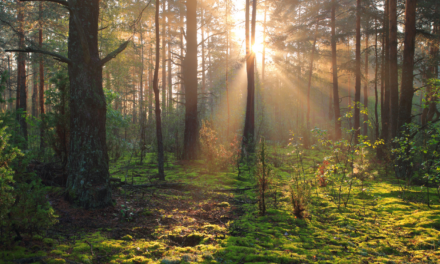“One person can make a difference” is the mantra of my dear friend, Emmy Award winning journalist, Tamara Banks. She certainly walks the talk. This past December, when many of us were shopping and eating too many sweets during the holidays, Tamara was preparing for her seventh journey to South Sudan. She is covering a new genocide happening in the Nuba Mountains. Just days before her trip, violence erupted precisely where she was going.. The airport closed and in about 24 hours, 400-500 people were killed and 700 injured, mostly soldiers. It looked like hell had just exploded. The U.S. government sent military aircraft to help with the evacuation of Americans. I immediately called Tamara and while I was relieved to learn her trip was delayed; she was in tears. She had promised the people she’d return and was doing everything possible to get there, in spite of the escalation of violence.

The Nuba Mountains are located in the Republic of Sudan, on the disputed border between South Sudan and Sudan. The Nuba are the indigenous people, who are now living in caves, in order to escape regular aerial bombardments by the north Sudanese government in Khartoum. It’s well documented that the genocide this extremist government is inflicting on the Nuba people is a result of its intention to secure the minerals and oil in the region. The international community continues to discuss a resolution while world news agencies continually report horrific stories of; abuse, beatings, rape, amputations, genital mutilation, starvation, child soldiers and slavery, particularly among children.

Tamara first traveled to South Sudan in 2008 to report on the abolitionists who are working to free the slaves. “After the Holocaust, we said never again. After Rwanda, we said never again. But here we are in the 21st Century and genocide once again rears its ugly head. I believe that once people come to know about these crimes against humanity; they will get involved and help bring it to an end, “said Tamara.
Traveling through this part of Africa is acutely dangerous. Journalists on assignment used to be protected by local governments; however, this is no longer the case and the danger for a woman is at least double. Tamara takes months to prepare physically, mentally, emotionally and spiritually before every assignment.
She diligently gets all the required immunizations while also accepting the harsh reality that she can easily become sick from diseases civilized society never heard of. She travels alone or with just a few people (for security reasons) along with the very real possibility of encountering bandits on the way.


She carries her own equipment including a heavy camera, snake anti-venom, a tent, food, clothing and what little uncontaminated water she can find. The roads are few and often washed out, transportation is unreliable and unlike developed countries, towing services are not “just a phone call away.”
Tamara has been known to live on only rations of water, crackers and peanut butter for days. She says she’s grateful for any nourishment when she’s in South Sudan; it’s the norm to see people starving, drinking contaminated water from mud puddles and dying in the streets.
Tamara’s documentaries tell powerful stories, real stories of real people, including: children forced into slavery, children held in captivity as soldiers and women who lovingly hold babies in their arms while recalling the painful memories of children they were forced to leave behind. (http://america.aljazeera.com/watch/shows/live-news/2014/1/former-lost-boy-returnstosouthsudan.html)
What inspires Tamara to rise above fear and danger to tell the story of the Nuba people?
Her response is as strong as she is. “I didn’t pick it. It picked me. The more I learned about the slavery issues going on over there, especially among children, the more I became interested in Sudan as a whole. The people are so kind, gentle, innocent and spiritual in spite of the humanitarian crisis being inflicted upon them.” She continued, “This is my calling. People depend on me now. God put it on my heart that I have to be there and tell this story so the world will stop pretending as though nothing is happening and take action to stop it.”
Click here to learn more about Tamara Banks and view a trailer of her most recent documentary: http://www.sudanuntoldstories.com/about-us/ and http://video.cpt12.org/video/2251247472/
Tamara Banks Bio: Emmy Award-Winning Journalist Tamara Banks has covered stories about genocide, social injustice and crimes against humanity from all over the world. Her reporting has taken her to Sudan, Iraq, Haiti and Rwanda and Uganda. Tamara is also the Producer and Co-Host of Studio 12, Colorado public television’s Emmy Award-Winning public affairs program and a freelance correspondent and producer for Al Jazeera America.












I have had the honor and the priviledge of meeting Tamara in South Sudan, where I have lived for the past four years. Tamara is a remarkable example of how one person can make a difference and share with the world news and information that should move all of us to eliminate the terrible suffering that exists around us. Godspeed Tamara!